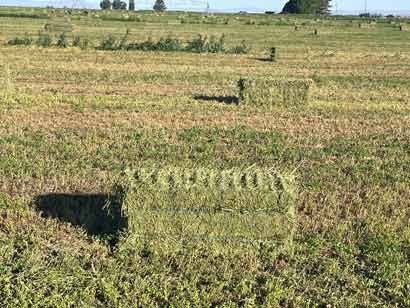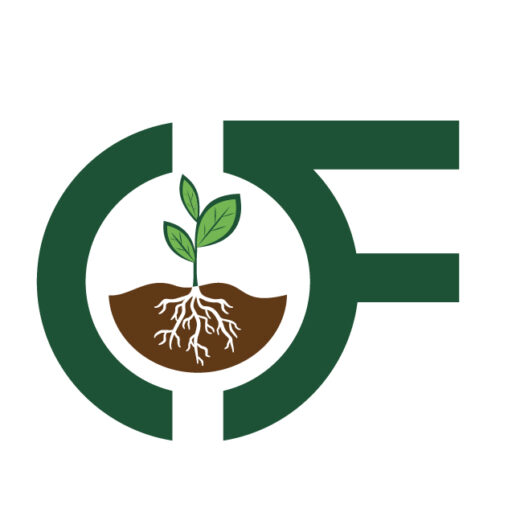Eco-Friendly Farming Practices: How Ohana Hay is Reducing its Environmental Footprint
At Ohana Farms, we pride ourselves on providing high-quality hay products to pet owners, farmers, and livestock enthusiasts while embracing sustainable and eco-friendly farming practices. As a local hay supplier in the Pasco and Tri-Cities community, we are committed to reducing our environmental footprint and promoting sustainable agriculture. Let’s explore how the eco-friendly farming practices we implement at Ohana Farms and the positive impact these practices have on the environment and our community.

(Black and white goat eating hay)
The Importance of Eco Friendly Farming Methods
Sustainable farming practices are essential for preserving the environment, supporting local communities, and ensuring the long-term viability of agricultural operations. By adopting eco-friendly practices, farmers can reduce their carbon footprint, conserve natural resources, and promote biodiversity. For Ohana Farms, sustainability is not just a buzzword; it’s a core value that guides our daily operations and long-term strategies.
Soil Health and Conservation
Healthy soil is the foundation of successful and sustainable farming. At Ohana Farms, we prioritize soil health through various conservation techniques. Healthy soil improves crop yields, enhances water retention, and supports biodiversity.
Crop Rotation
Crop rotation involves planting different crops in the same field across different seasons or years. This practice helps break pest and disease cycles, improves soil fertility, and reduces the need for chemical fertilizers. By rotating hay with other crops, we maintain soil health and increase the resilience of our fields.
Cover Cropping
Cover crops, such as legumes and grasses, are planted during off-seasons to protect and enrich the soil. These crops prevent soil erosion, improve soil structure, and increase organic matter content. Cover cropping also helps fix nitrogen in the soil, reducing the need for synthetic fertilizers.
Reduced Tillage
Minimizing soil disturbance through reduced tillage practices helps preserve soil structure and prevent erosion. Reduced tillage also promotes the activity of beneficial soil organisms, which contribute to nutrient cycling and soil health. At Ohana Farms, we implement reduced tillage methods to maintain soil integrity and reduce our environmental impact.
Water Conservation
Water is a precious resource, and efficient water management is crucial for sustainable farming. Ohana Farms employs several water conservation practices to optimize water use and reduce waste.
Drip Irrigation
Eco-friendly farm equipment like drip irrigation systems deliver water directly to the plant roots, minimizing water loss through evaporation and runoff. This method is highly efficient and ensures that our hay crops receive the precise amount of water they need to thrive.
Rainwater Harvesting
Collecting and storing rainwater for irrigation purposes helps reduce our reliance on groundwater and municipal water sources. Rainwater harvesting systems capture rainwater from roofs and other surfaces, which can then be used to irrigate our fields during dry periods.
Soil Moisture Monitoring
Using soil moisture sensors allows us to monitor soil water levels accurately and adjust our irrigation practices accordingly. By ensuring that our crops receive optimal moisture levels, we can conserve water and prevent over-irrigation.
Biodiversity and Wildlife Conservation
Biodiversity is essential for maintaining healthy ecosystems and promoting sustainable agriculture. At Ohana Farms, we implement practices that support biodiversity and protect local wildlife.
Planting Native Species
Incorporating native plant species into our farming operations helps create habitats for local wildlife and supports pollinators such as bees and butterflies. Native plants are well-adapted to the local climate and soil conditions, making them resilient and beneficial for the environment.
Creating Wildlife Corridors
Designating areas of our farmland as wildlife corridors allows animals to move freely between habitats. These corridors provide safe passage for wildlife and help maintain ecological balance. By preserving natural habitats and creating corridors, we contribute to the conservation of local wildlife.
Integrated Pest Management (IPM)
Integrated Pest Management (IPM) is an eco-friendly approach to pest control that combines biological, cultural, and mechanical methods to manage pest populations. IPM reduces the need for chemical pesticides, protecting beneficial insects and reducing environmental contamination. At Ohana Farms, we use IPM strategies to maintain healthy crops while minimizing our impact on the ecosystem.
Renewable Energy and Waste Reduction
Reducing our reliance on fossil fuels and minimizing waste are key components of our sustainability efforts. Ohana Farms is committed to adopting renewable energy sources and implementing waste reduction practices.
Solar Power
Harnessing solar energy through the installation of solar panels helps reduce our carbon footprint and decrease our dependence on non-renewable energy sources. Solar power provides a clean and renewable source of energy for our farming operations, contributing to a greener future.
Composting
Composting organic waste, such as crop residues and animal manure, helps reduce waste and improve soil health. Composting converts organic materials into nutrient-rich compost, which can be used to enrich our fields and reduce the need for synthetic fertilizers.
Recycling and Upcycling
Implementing recycling programs and finding creative ways to upcycle materials reduces waste and promotes resource efficiency. At Ohana Farms, we strive to recycle materials whenever possible and explore innovative ways to repurpose agricultural by-products.
Community Engagement and Education
Engaging with the local community and promoting sustainability education are essential for fostering a culture of environmental stewardship. Ohana Hay is dedicated to sharing our knowledge and practices with the Pasco and Tri-Cities community.
Workshops and Tours
Hosting workshops and farm tours allows us to educate the community about sustainable farming practices and the importance of environmental conservation. These events provide hands-on learning opportunities and inspire others to adopt eco-friendly practices.
Collaboration with Local Organizations
Collaborating with local environmental and agricultural organizations helps amplify our sustainability efforts and create positive change. By working together, we can promote sustainable agriculture and support initiatives that benefit the community and the environment.
Supporting Local Economy
Buying hay from local suppliers like Ohana Farms helps support the local economy. It keeps money within the community, creates jobs, and fosters economic growth. Local farmers and suppliers are more likely to reinvest in their operations, leading to improved quality and sustainability.
Conclusion
At Ohana Farms, sustainability is at the heart of everything we do. Our commitment to eco-friendly farming practices not only reduces our environmental footprint but also enhances the quality of our hay products and supports the local community. By prioritizing soil health, conserving water, promoting biodiversity, adopting renewable energy sources, and engaging with the community, we are leading the way in sustainable agriculture.
As a trusted local hay supplier, we are dedicated to providing high-quality hay products to pet owners, farmers, and livestock enthusiasts in the Pasco and Tri-Cities community. By choosing Ohana Farms, you are supporting sustainable practices and contributing to a greener future.
Thank you for considering Ohana Farms for your hay needs. Together, we can make a positive impact on the environment and promote sustainable agriculture for generations to come.

